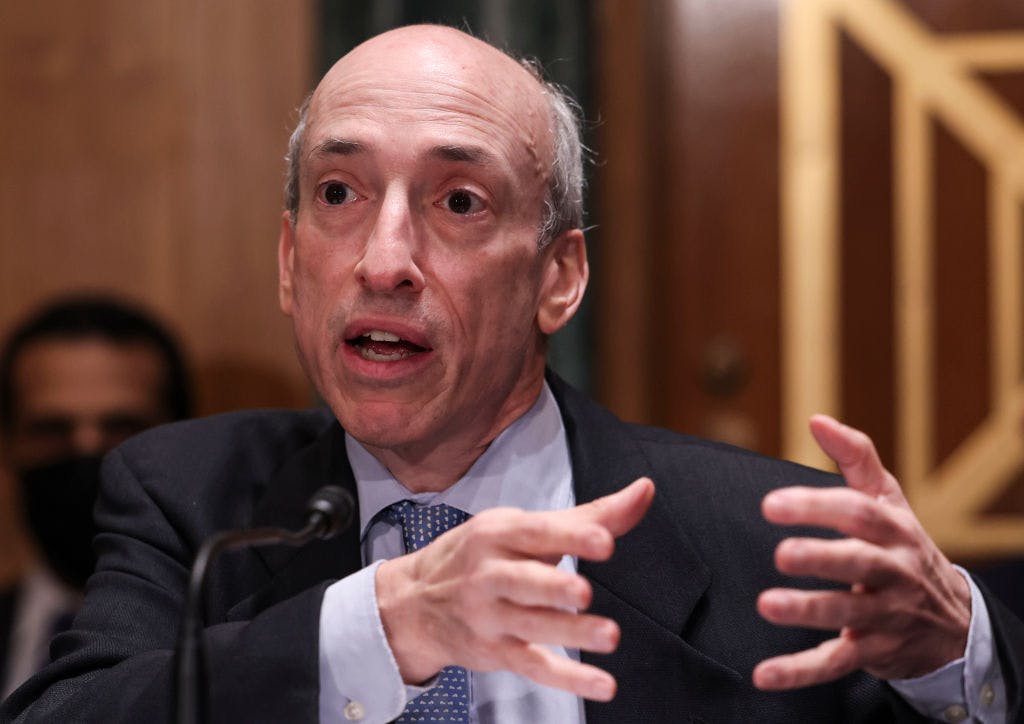Waiting for the Hayek
As Americans scramble for honest money, they’re damned if they do and damned if they don’t.

The thing to keep in mind about the Securities and Exchange Commission’s attack on crypto is that it’s happening in the age of fiat money. The reason Americans are flocking to crypto and digital forms of money, after all, is that the government has destroyed the dollar. Since the creation of the Federal Reserve, the greenback has lost more than 98 percent of its value in specie, most of it in the 52 years after the collapse of Bretton Woods.
Aye, there’s the scandal. We’re all for the G-Men doing their best to prevent Americans from getting rooked in the casbahs of crypto, though most investors knew the risks. What about the poor schleppers who put their trust in the greenbacks issued by the federal government? They could stash their loot in Federal Reserve notes as they’re being inflated, or put their money in crypto, only to get sued. Damned if they do, damned if they don’t.
Millions put their trust in Congress after the passage in 1900 of the Gold Standard Act. It defined a dollar as a 20.67th of an ounce of gold. That lasted barely a generation and a half. Along come the big-spending Democrats — spelled Franklin Delano Roosevelt. They defaulted on the dollar, cutting its value to a 35th of an ounce of gold. FDR turned around and went after the wealthy, but forgot the issuers of America’s own currency.
That’s the context in which the SEC is going after crypto. It’s filed complaints against the two largest crypto exchanges, Coinbase and Binance. The SEC’s suit says Coinbase failed to register as “an exchange, broker, or clearing agency” for crypto assets, which the SEC contends have “the characteristics of securities” and thus fall under its regulatory purview. The SEC says Binance “mishandled customer funds and misled investors,” Bloomberg reports.
The SEC chairman, Gary Gensler, is “enforcing rules that, if followed, would kill off almost all of crypto,” Columbia Business School’s Omid Malekan says. Mr. Gensler avers that legitimate exchanges are being “undermined” by crypto marketplaces. The SEC suit says crypto investors on Coinbase are being “exposed to significant risk.” Yet if the instability of crypto assets is behind Mr. Gensler’s drive, when will the SEC act against the Fed’s notes?
We ask this because the new crypto- and digital currencies can be seen as a vote of no-confidence in government fiat money. Crypto innovators and investors are grappling with an insight from the Nobel laureate Friedrich Hayek in his book “Denationalization of Money.” Relatively late in his epic career, Hayek’s book concluded that “the source and root of all monetary evil” was “the government monopoly of the issue and control of money.”
It can’t be a coincidence that Hayek had his epiphany about denationalizing money in 1976, five years into the age of fiat money. He’d seen America sever the last link between the dollar and gold. Hayek’s vision, he wrote, was “to impose upon monetary and financial agencies a very much needed discipline” — to make it impossible “to issue a kind of money substantially less reliable and useful than the money of any other.”
Hayek saw denationalizing money as a back door to restoring aspects of the gold standard. “I don’t believe we shall ever have good money again before we take it out of the hands of government,” he said in 1984. “We can’t take it violently out of the hands of government. All we can do is by some sly, roundabout way introduce something they can’t stop.” Mr. Gensler knows that honest money is a brake on government.
The SEC isn’t alone in seeking authority over crypto- and digital currencies. A purportedly bipartisan effort is brewing in the Senate to regulate the industry. Time, we say, to take a new look at measures like Ron Paul’s Free Competition in Currency Act to protect innovation in private money. Why not let private enterprise introduce, if it can, honest money where the government has failed? Maybe someone will issue a digital dollar called the Hayek.

